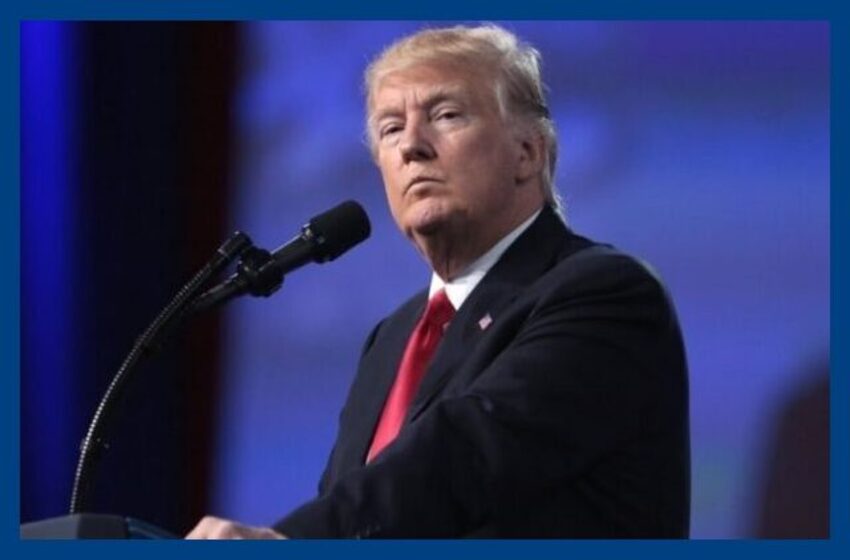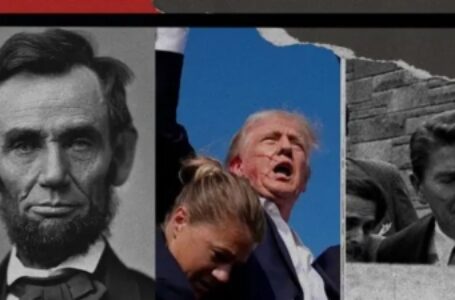Name That Virus? Trump And The Media Go To War

By: Mark Angelides
Media pundits and politicians are in meltdown as the most significant crisis they have ever faced hits them head-on – but it’s neither the COVID-19 pandemic nor the market collapses that are causing such existential grief. No. The real culprit is President Donald Trump, who stubbornly refuses to stop calling the aforementioned pandemic “The China Virus.”
 The China Virus, the Chinese Coronavirus, choose your poison. The fact is that in terms of the amount of outrage generated, the president’s words have tipped the scales even beyond that of the suspension of rights, handouts in the billions, and closure of schools across the nation. It appears that sticks and stones are no match for such dangerous words.
The China Virus, the Chinese Coronavirus, choose your poison. The fact is that in terms of the amount of outrage generated, the president’s words have tipped the scales even beyond that of the suspension of rights, handouts in the billions, and closure of schools across the nation. It appears that sticks and stones are no match for such dangerous words.
1984
The word “Orwellian” gets a lot of use nowadays, and in many cases, rightly so. Yet has there ever been a time when the application of this term is more appropriate? It appears that certain elements in the political sphere and news media are attempting to quite literally rewrite history in much the same fashion as The Party in George Orwell’s classic 1984.
An author for Vox recently wrote:
“The world has been trying to move past the racist disease-naming conventions of the past in recent years…”
Really? Is any single person aware of this supposed movement to rename diseases to better reflect the global element of virus transmission? Let’s consider an example: The Ebola Virus.
A Rose By Any Other Name
How the Ebola Virus got its name is illustrative in many ways. It was first identified in 1976 by a team of international researchers by viewing specimens in the lab, what they saw and the implications of this worm-like virus under the microscope shocked them; most viruses were not this shape. When they hit the ground in Zaire, now called the Democratic Republic of the Congo, and realized how devastating this virus was to the villagers of Yambuku where it appeared to originate, the scientists understood that this was clearly something very different and very dangerous.

Yambuku 1976
The story of how Ebola was finally named is related by the co-discoverer Dr. Peter Piot, in his book, No Time to Lose: A Life in Pursuit of Deadly Viruses. Piot describes how he and other researchers were sat around late at night over a bottle (perhaps more than one) of Kentucky bourbon, trying to come up with a suitable name for this new and deadly disease.
The first thought was to name it after the village, Yambuku, but one CDC researcher thought that it might stigmatize this particular village as had happened with the Lassa Virus. Another CDC fellow, Karl Johnson, who was also the head of the team, then thought why not name it after a nearby river. However, the closest river was, in fact, the Congo River, which already had a virus named after it, Crimean-Congo hemorrhagic fever. In the end, they pulled out a map and decided on the Ebola River … and the name has stuck ever since.
Were these scientists and researchers attempting to spread racism through the classification of a virus? Remember, they were at ground zero trying to save lives at great personal risk. Or were they simply trying to use an easily recognizable name that needs must be translatable into every single language in the world?
Radicals And Radicalization
Again, in the Vox article, comes a statement that doesn’t ring true and is not supported by evidence:
“There is a long history of racializing pandemics by attaching them to a specific place and people, othering a pathogen that originated in another land in much the same way white Americans have historically othered people of color who came to (or whose ancestors came to) the United States from somewhere else.”
So other leaders have radicalized pandemics? Not just Trump? Naturally, the author fails to name names. But let’s examine a few of the recent virus outbreaks and see if we can tie them into any historic othering. In the last few decades, the world has experienced the Spanish Flu, the London Flu, and the Asian Flu. We could, of course, follow this progressive demand of action and refer to them respectively as Influenza A virus subtype H1N1, Influenza A virus subtype H3N2, and Influenza A virus subtype H2N2, but let’s be brutally fair: It’s confusing and would in no way aid cross border cooperation in saving lives. And if we were to be as honest as we were fair, we would also acknowledge that during these outbreaks, nobody was “othered.”
The World Health Organization has actually made some effort to get names changed and to encourage researchers and scientists to be considerate of using place names by releasing a note to the media in 2015. The message asks that animal names, human names, and place names be given a wide berth. Their efforts were perhaps undercut by pointing out at the end that the decision to name viruses, diseases, and the like are solely carried out through the International Classification of Diseases (ICD), a template and listing system. The ICD is apparently managed by the WHO, but each member country of the WHO can add or change names at their own discretion.
The WHO wrote:
“The final name of any new human disease is assigned by the International Classification of Diseases (ICD), which is managed by WHO. ICD is used by doctors, nurses, researchers, health information managers and coders, policymakers, insurers and patient organizations around the world to classify diseases and other health problems and record them in a standardized way on health records and death certificates. This enables the storage and retrieval of diagnostic information for clinical, epidemiological and quality purposes.”
What they are saying is that countries will decide what name to use based on how easy it is to record and access information. Which is easier and more likely to be accurately recorded, and therefore useful: Pandemic H1N1/09 virus or Swine Flu? Pity the poor swine who may feel othered by such a designation.
Down The Memory Hole
Let’s get back to Orwell for a moment. In 1984, Winston Smith is asked to believe contradictory truths and to accept that the past is whatever the Party says it is.
“The past was alterable. The past never had been altered. Oceania was at war with Eastasia. Oceania had always been at war with Eastasia.”
We are now being told that the WHO and CDC have always tried to stop the naming of viruses in such an allegedly harmful way, at the same time as they are naming viruses after exact locations. We are being told that people have always been othered by such namings and that pandemics have always been radicalized, but that President Trump is doing something no other person has done before. These pundits and politicos would have us believe that this is an age-old problem… it’s just not the case.
 In order to prove their position, the left is engaged in yet another Orwellian practice, that of using the Memory Hole. In the novel, this was a way of removing any evidence that points to the contrary and current reality. Could such a thing really be taking place today? Well, yes.
In order to prove their position, the left is engaged in yet another Orwellian practice, that of using the Memory Hole. In the novel, this was a way of removing any evidence that points to the contrary and current reality. Could such a thing really be taking place today? Well, yes.
In the wake of Trump’s insistence on saying Chinese Virus, and the progressives calling it racist, many have pointed out that nobody ever called the Spanish Flu a racist term. A solid defense, you might think, but not for the users of the memory hole. These happy vandals can espouse the same language one week and call it rotten the next. For example:
The Washington Post, February 27 – “Chinese coronavirus tally continues to grow.”
The Washington Post, March 18 – “Trump dubs COVID-19 ‘Chinese virus’ despite hate crime risks.”
Also, the BBC, Reuters, and many other outlets once used the terms “Chinese Virus” or “Chinese Coronavirus” and now react with pearl-clutching horror when Trump does the same. Memory Holes work, but the internet rarely forgets.
Propaganda Wars
The reality is that Donald Trump is using the term China Virus for a very specific reason: to combat Chinese state-sponsored propaganda that is trying to accuse the U.S. of releasing the virus in China. We can perhaps understand why the Communist government might not want its own people, people who are notoriously revolutionary, to think this was a failing of the state, but that doesn’t mean that the president of the United States should meekly roll over and let them carry out their information war.
Trump is striking back at propaganda and resetting the narrative, trying to get the truth to take the prime place in this saga. Why is the media fighting so hard to push the Chinese Communist Party’s propaganda against their own president? This should scare us more than the Chinese Virus. But perhaps the most terrifying aspect is that they would so swiftly fall to Orwellian tactics to do so… this is the real danger; this is the real threat.
~
Read more from Mark Angelides.















